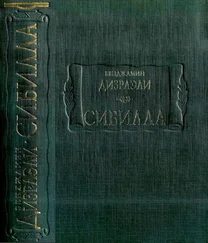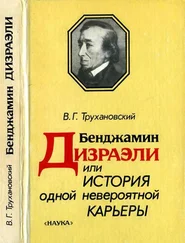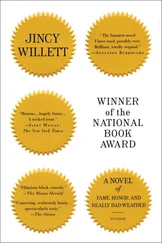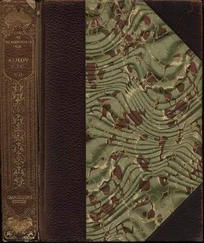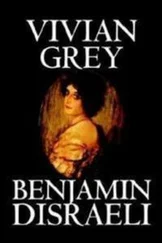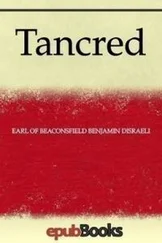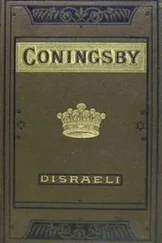It was a fine summer day, and Mowedale was as resplendent as when Egremont amid its beauties first began to muse over the beautiful. There was the same bloom over the sky, the same shadowy lustre on the trees, the same sparkling brilliancy on the waters. A herdsman following some kine was crossing the stone bridge, and except their lowing as they stopped and sniffed the current of fresh air in its centre, there was not a sound.
Suddenly the tramp and hum of a multitude broke upon the sunshiny silence. A vast crowd with some assumption of an ill–disciplined order approached from the direction of Mowbray. At their head rode a man on a white mule. Many of his followers were armed with bludgeons and other rude weapons, and moved in files. Behind them spread a more miscellaneous throng, in which women were not wanting and even children. They moved rapidly; they swept by the former cottage of Gerard; they were in sight of the settlement of Trafford.
"All the waters of the river shall not dout the blaze that I will light up to–day," said the Liberator.
"He is a most inveterate Capitalist," said Field, "and would divert the minds of the people from the Five Points by allotting them gardens and giving them baths."
"We will have no more gardens in England; everything shall be open," said the Liberator, "and baths shall only be used to drown the enemies of the People. I was always against washing; it takes the marrow out of a man."
"Here we are," said Field, as the roofs and bowers of the village, the spire and the spreading factory, broke upon them. "Every door and every window closed! The settlement is deserted. Some one has been before us and apprised them of our arrival."
"Will they pour water on me?" said the Bishop. "It must be a stream indeed that shall put out the blaze that I am going to light. What shall we do first? Halt there, you men," said the Liberator looking back with that scowl which his apprentices never could forget. "Will you halt or won't you? or must I be among you?"
There was a tremulous shuffling and then a comparative silence.
The women and children of the village had been gathered into the factory yard, of which the great gates were closed.
"What shall we burn first?" asked the Bishop.
"We may as well parley with them a little," said Field; "perhaps we may contrive to gain admission and then we can sack the whole affair, and let the people burn the machinery. It will be a great moral lesson."
"As long as there is burning," said the Bishop, "I don't care what lessons you teach them. I leave them to you; but I will have fire to put out that water."
"I'll advance," said Field, and so saying he went forward and rang at the gate; the Bishop, on his mule, with a dozen Hell–cats accompanying him; the great body of the people about twenty yards withdrawn.
"Who rings?" asked a loud voice.
"One who by the order of the Liberator wishes to enter and see whether his commands for a complete cessation of labour have been complied with in this establishment."
"Very good," said the Bishop.
"There is no hand at work here," said the voice; "and you may take my word for it."
"Your word be hanged," said the Bishop. "I want to know—"
"Hush, hush!" said Field, and then in a louder voice he said, "It may be so, but as our messengers this morning were not permitted to enter and were treated with great indignity—"
"That's it," said the Bishop.
"With great indignity," continued Field, "we must have ocular experience of the state of affairs, and I beg and recommend you therefore at once to let the Liberator enter."
"None shall enter here," replied the unseen guardian of the gate.
"That's enough," cried the Bishop.
"Beware!" said Field.
"Whether you let us in or not, 'tis all the same," said the Bishop; "I will have fire for your water, and I have come for that. Now lads!"
"Stop," said the voice of the unseen. "I will speak to you."
"He is going to let us in," whispered Field to the Bishop.
And suddenly there appeared on the flat roof of the lodge that was on one side of the gates—Gerard. His air, his figure, his position were alike commanding, and at the sight of him a loud and spontaneous cheer burst from the assembled thousands. It was the sight of one who was after all the most popular leader of the people that had ever figured in these parts, whose eloquence charmed and commanded, whose disinterestedness was acknowledged, whose sufferings had created sympathy, whose courage, manly bearing, and famous feats of strength were a source to them of pride. There was not a Mowbray man whose heart did not throb with emotion, and whose memory did not recall the orations from the Druid's altar and the famous meetings on the moor. "Gerard for ever" was the universal shout.
The Bishop who liked no one to be cheered except himself, like many great men, was much disgusted, a little perplexed. "What does all this mean?" he whispered to Field. "I came here to burn down the place."
"Wait awhile," said Field, "we must humour the Mowbray men a bit. This is their favourite leader, at least was in old days. I know him well; he is a bold and honest man."
"Is this the man who ducked my people?" asked the Bishop fiercely.
"Hush!" said Field; "he is going to speak."
"My friends," said Gerard, "for if we are not friends who should be? (loud cheers and cries of "Very true"), if you come hear to learn whether the Mowedale works are stopped, I give you my word there is not a machine or man that stirs here at this moment (great cheering). I believe you'll take my word (cheers, and cries of "We will"). I believe I'm known at Mowbray ("Gerard for ever!"), and on Mowbray Moor too (tumultous cheering). We have met together before this ("That we have"), and shall meet again yet (great cheering). The people haven't so many friends that they should quarrel with well–wishers. The master here has done his best to soften your lots. He is not one of those who deny that Labour has rights (loud cheers). I say that Mr Trafford has always acknowledged the rights of Labour (prolonged cheers and cries of "So he has"). Well, is he the man that we should injure? ("No, no"). What if he did give a cold reception to some visitors this morning—(groans)—perhaps they wore faces he was not used to (loud cheers and laughter from the Mowbray people). I dare say they mean as well as we do—no doubt of that—but still a neighbour's a neighbour (immense cheering). Now, my lads, three cheers for the National Holiday," and Gerard gave the time, and his voice was echoed by the thousands present. "The master here has no wish to interfere with the National Holiday; all he wants to secure is that all mills and works should alike stop (cries of "Very just"). And I say so too," continued Gerard. "It is just; just and manly and like a true–born Englishman as he is, who loves the people and whose fathers before him loved the people (great cheering). Three cheers for Mr Trafford I say;" and they were given; "and three cheers for Mrs Trafford too, the friend of the poor!" Here the mob became not only enthusiastic but maudlin; all vowing to each other that Trafford was a true–born Englishman and his wife a very angel upon earth. This popular feeling is so contagious that even the Hell–cats shared it—cheering, shaking hands with each other, and almost shedding tears—though it must be confessed that they had some vague idea that it was all to end in something to drink.
Their great leader however remained unmoved, and nothing but his brutal stupidity could have prevented him from endeavouring to arrest the tide of public feeling, but he was quite bewildered by the diversion, and for the first time failed in finding a prompter in Field. The Chartist was cowed by Gerard; his old companion in scenes that the memory lingered over, and whose superior genius had often controlled and often led him. Gerard too had recognized him and had made some personal allusion and appeal to him, which alike touched his conscience and flattered his vanity. The ranks were broken, the spirit of the expedition had dissolved, the great body were talking of returning, some of the stragglers indeed were on their way back, the Bishop silent and confused kept knocking the mane of his mule with his hammer.
Читать дальше

